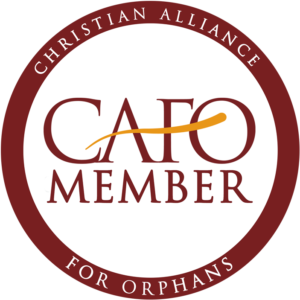It’s hard to imagine how to help 153+ million orphans.
It can be such an enormous cause that most of us would rather not even think about it because deep down we believe that we can’t really have the kind of impact needed to help all of those children.
So, many of us choose to think about something else, or even pretend that the only reality that exists is our reality….in our community, in our workplace, in our neighborhoods. That helps us detach from our inability to help these desperate children all over the world.
In Psychology, dissociation is a term used to describe an experience of having one’s attention and emotions detached from the reality in their environment.
Guilt by Dissociation:
This could be a stretch, but I think that many of our church leaders in particular struggle with “Guilt by dissociation“.
What in the world are you talking about Steve? First, this is not a knock on church leaders. I’m actually defending them and working hard to empower them! I want to identify some things that keep our churches from being most effective.
Think about how many pastors and staff members we have in our churches who have not fostered or adopted.
Think about the scores who have never even been to an orphanage or a social services office.
That “ministry gap” could produce some pastoral guilt and expose a lack of confidence in the orphan arena by many.
With all the leadership books that are digested in our churches, I think that pastors and staff members from these churches are worried about leading something that is so complex, even foreign to their world and experience. If they can’t grasp it, the church will never realize its potential. Unfortunately, there are not enough books on the subject to create clarity for every pastor. I speak from my own personal experience.
Imagine:
Can you imagine if the White House called you today and asked you to speak next week on a panel to explain the science behind near death experiences? Let’s just say you are a teacher by trade. First, you probably have not experienced a near death experience and you are an educator. So, you would feel rather unprepared and Google would be your best friend. Or, you would fake a major surgery and decline the invitation.
Now, let’s have some fun and just say you have to be there to present to some very important people. All of these people (who have access to the internet) are waiting for your expertise.
That’s pretty intimidating, huh?
Defending Pastors/Staff:
I think pastors/staff feel that same type of intimidation when it comes to children in foster care and global orphans. This is often times a very complex and challenging ministry. Pastors/staff like to be prepared when standing in front of a room full of people. And, they DO NOT want to be seen as hypocritical. So, you can see how these ministries can get stalled in the early stages.
To add to it, the “orphan advocate crowd” is so passionate in the church that they sometimes intimidate church leaders in the process. They don’t mean too. They just want others to experience what they have experienced and would love for the church to help lead the effort.
This could unintentionally add to the “dissociation” of a church leader.
On top of all of that, think again about the pastor or staff member who considers leading the effort, but they have yet to experience foster care or adoption. The concept seems distant to them and they still have to balance all other areas of ministry in the church. That sets up for a very challenging situation in the life of that church.
How does our church move ahead?
First, we realize that not everyone is called to foster or adopt. But, everyone can do something. That goes for church leaders and church members. We must allow people to breathe and ask the Lord what their role is in all of this. A pastor is not a hypocrite for standing in the pulpit to proclaim what the Bible says about the church being “our brother’s keeper”. That’s their job.
Second, we have to bring the passion of those church orphan advocates together with the vision and leadership of the church. The two can work together as part of the bigger picture in church ministries. Pastors share the vision and the Biblical mandate and the advocates help advance the cause of the ministry.
When that is accomplished, the pastor gets to lead the effort (whether personally fostering/adopting or not), surrounded by the advocates in the church who have banded together for the good of the children in their community. These are people who have come together to use each of their gifts and callings to care for these precious kids.
It’s what God called us to do. We work together. We don’t put undue pressure or expectations on people. We work in a unified fashion as we pray and move ahead with wisdom and excitement.
In this type of environment, children in foster care will win. Global orphans will win. Pastors win. The church wins. And, the community wins.
Watch what happens at your church when your church leaders finally kick the guilt by dissociation and lead the advocates who already exist in the church to work as the church and care for the most vulnerable.
Remove all hindrances – Great things are ahead for the unified Church!
Steve Gillis Founder | Exec. Director www.patchourplanet.org “We help create long term orphan care strategies for the sake of the church and the child”


